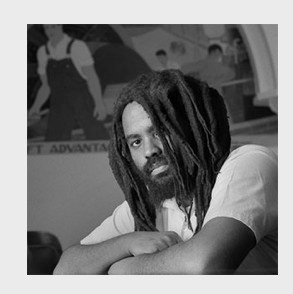[col. writ. 9/28/14] © ’14 Mumia Abu-Jamal
The stark and moving images arising from the violence, repression and resistance of Ferguson, Missouri, continue to percolate throughout national and global consciousness.
If, as the old saying goes, ‘a picture is worth a thousand words’, the thousands of images radiating from Ferguson must be worth millions of words.
And those words are damning; “state terror” turns its fearful face towards Black alleged citizens who dare protest against state violence. One looks at these images and sees in an instant that there is a war against Black people.
What are Black politicians saying? More importantly, what are they doing?
The kindest answer is they that have not been distinguished in their actions and responses. Many, perhaps most, have been silent.
For young folks in Ferguson and beyond, they know what they know, because they’ve experienced what they’ve experience; and the bright and shiny promises taught to them since childhood – of civil rights – is about as relevant and realistic as Santa Claus – or the Easter Bunny.
Their lives may be measured by humiliation and exploitation; by police repression, nonfunctional schools and meager job opportunities. Courts are cold, impersonal jail factories – and the prison cell is all but inevitable.
How did this happen?
Because politics has never been the driver of public activism; it has been driven by episodes of activism.
Furthermore, Black politicians in predominantly white institutions of power, exercise presence – not power.
Finally, politicians are disciplined by a white corporate press which narrows the range of their political activity. For black politicians, like white politicians, want to be liked and to be seen as likable.
“Why rock the boat?” they wonder.
So, Ferguson explodes, with searing images of rage and resistance – and silence.
For them, the system doesn’t work.
A new, militant, responsive politics must arise, built by the young, who are clear-eyed and committed.
-© ‘14maj

